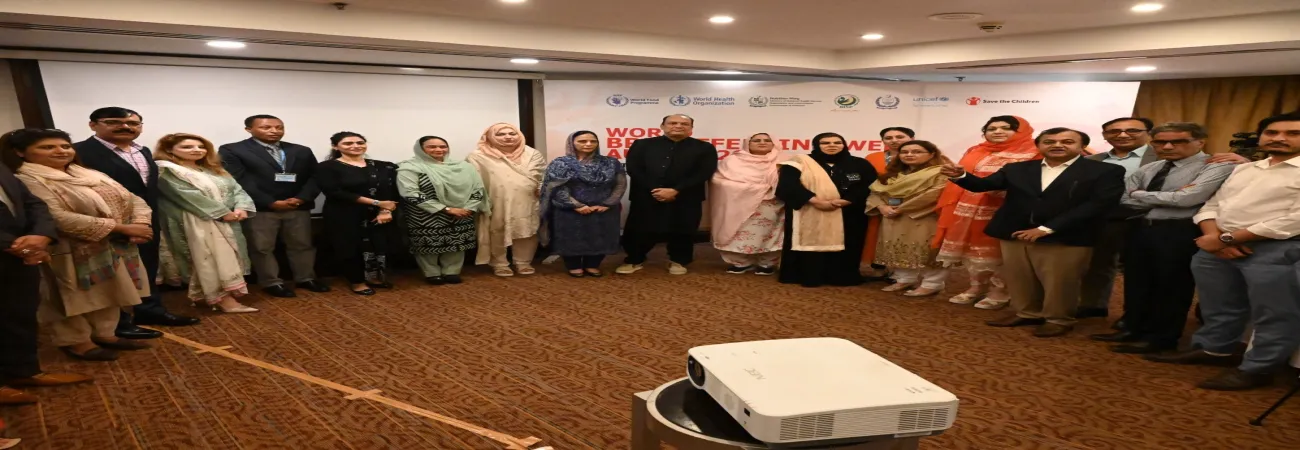i NEWS PAKISTAN
To prioritize the children health in Pakistan, breastfeeding needs promotion and proper government support. A sufficient budget allocation and collaboration of public private bodies can play a crucial role in this concern, said Chief of Nutrition at UNICEF Pakistan, Anteneh G. Minas while addressing the seminar for ‘National Advocacy & Sensitisation with Parliamentarians on the World Breastfeeding Awareness Week’. Anteneh underscored the essential role of parliamentarians and policymakers in securing adequate budgeting to support initiatives to create a conducive environment for breastfeeding. He also highlighted the ongoing efforts by UNICEF for a strong advocacy for the enforcement of the Breast-milk Substitutes Acts. Addressing the event, Coordinator to the Prime Minister on Ministry of Climate Change and Environmental Coordination, Romina Khurshid Alam said, “Nutrition is not just a health issue; it is essential for our society's development, economic growth, and resilience, especially as we face increasing climate change challenges.
In Pakistan, breastfeeding is vital for the health of both children and mothers”. Discussing the possible climatic impacts on the maternal and child health, she said that during emergencies and crises caused by climate change, it is crucial for healthcare professionals, community leaders, policymakers, and society to support women in their breastfeeding journey. Muhammad Naeem from Save the Children International Pakistan shared, “Our mission prioritizes the health of children. So, we are dedicated to enhance maternal and child health through targeted programs and strategic partnerships with government bodies and organizations like UNICEF.” MNA/Secretary of the Women’s Parliamentary Caucus, Dr. Shahida Rehmani, highlighted the Caucus's critical role in advocating for women's rights across Pakistan. She stated, “During Breastfeeding Week, we have celebrated our efforts, including advocating for training on breastfeeding for lady health workers.
It is crucial to support and promote the holistic needs of mothers, including proper nutrition, care, and mental well-being.” Sharing insights into legislative measures to protect breastfeeding practices, MNA, Ms. Rana Ansar, said, “A bill passed in the Sindh Assembly prohibits formula milk companies from marketing their products as substitutes for breast milk. Additionally, amendments require workplaces with twenty-five or more employees, whether public or private, to provide day-care centres. A resolution will also be passed to establish day-care centres in all assemblies and other workplaces, along with extended sick leaves for both mothers and fathers.” The event was joined by parliamentarians, public health experts, civil society members, students, and the general public. Notable attendees included representatives from UNICEF Pakistan, the Health Services Academy, Save the Children International, and Members of the National Assembly (MNAs).
Credit: Independent News Pakistan









